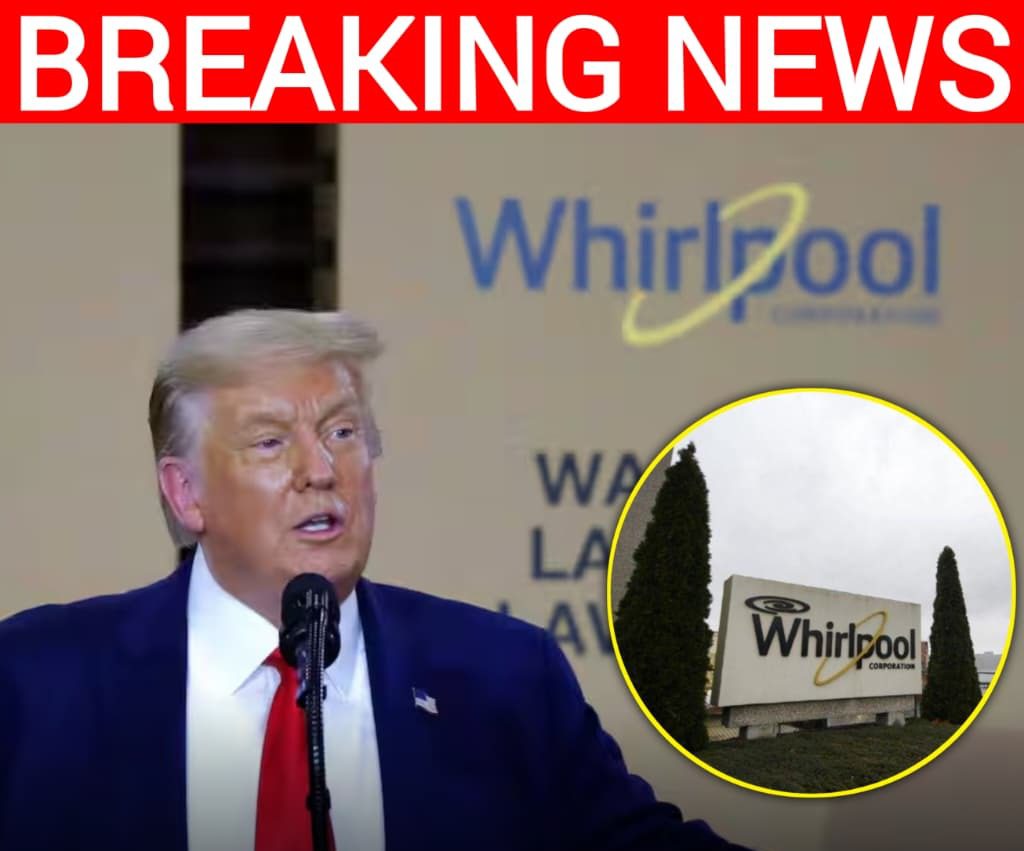President Trump Applauds Whirlpool’s $300 Million U.S. Investment, Creating Thousands of Jobs in Another Reshoring Victory for American Manufacturing
Whirlpool Corporation’s latest $300 million investment in its Ohio laundry manufacturing facilities marks one of the strongest signals yet that America’s manufacturing resurgence under President Donald Trump’s pro-industry policies continues to gain momentum. Announced on October 15, 2025, the Michigan-based appliance giant revealed plans to expand its production capabilities and modernize its operations, creating between 400 and 600 new direct jobs while supporting another 5,000 roles across its extensive supply chain.
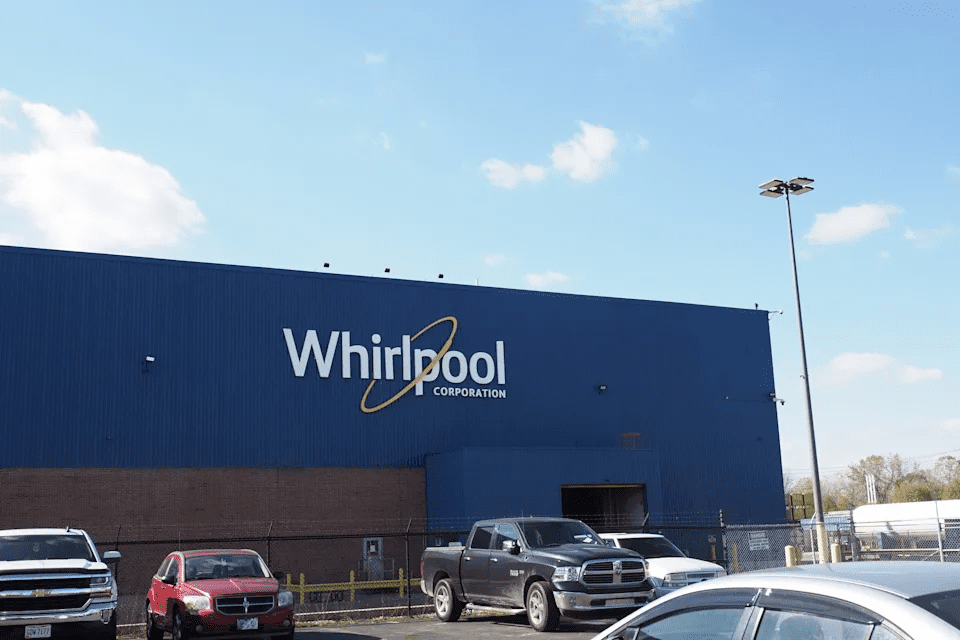
The news comes as a celebration of both economic confidence and long-term vision. For many, it represents tangible proof that Trump’s “Made in America” focus—once a campaign slogan—has evolved into a movement shaping real-world business decisions. Whirlpool executives credited a stronger domestic manufacturing environment and consistent consumer demand for U.S.-made products, trends that align closely with Trump’s renewed push to bring industrial jobs back home.
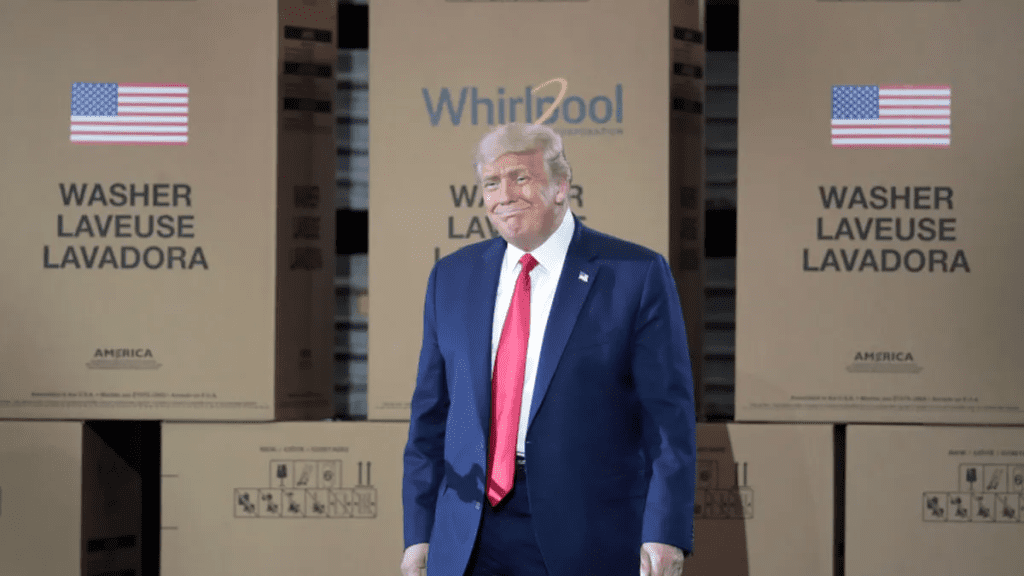
This investment is not Whirlpool’s first show of faith in America’s economic future. The company’s relationship with Trump’s policies stretches back to 2018, when his administration imposed 20% to 50% tariffs on imported washing machines. While controversial at the time, those measures effectively leveled the playing field for U.S. manufacturers who had long struggled against cheaper imports. Whirlpool’s response was swift—expanding U.S. production, adding 200 new jobs, and reporting a 20% increase in domestic output in the years that followed.
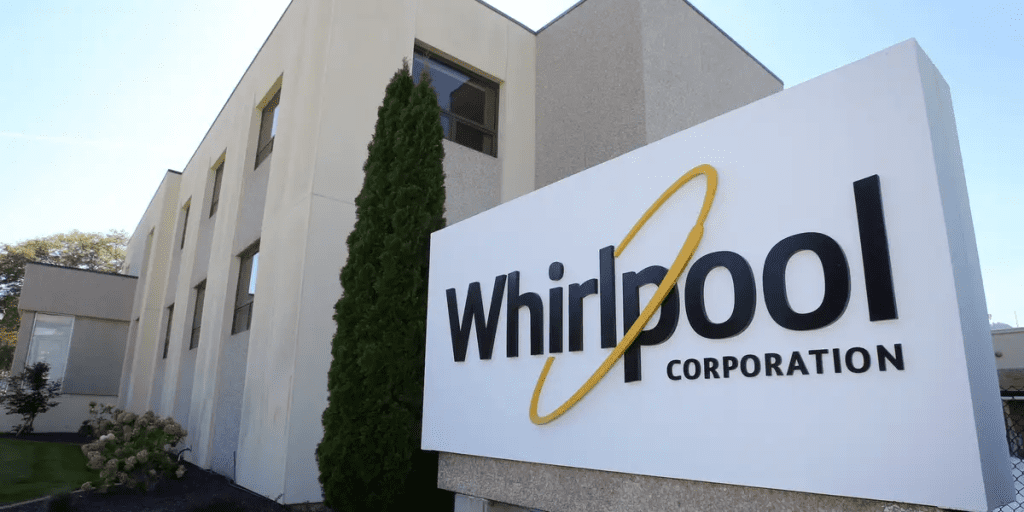
Fast-forward to 2025, and the company’s newest $300 million expansion underscores the enduring impact of those early economic policies. The facility upgrades in Ohio will introduce advanced automation and efficiency systems designed to boost output and reduce production bottlenecks. However, despite the technological investments, Whirlpool reaffirmed that human labor remains central to its growth plan—hiring hundreds of American workers to power the next generation of U.S.-made appliances.
Economically, the announcement arrives during a broader trend of reshoring—a movement among major corporations to return manufacturing and supply chains to U.S. soil. According to Commerce Department data, domestic manufacturing investments rose 15% year-over-year in 2025, fueled by tariffs, tax incentives, and a growing national preference for locally produced goods. The data also reflects confidence in stable policy direction, something business leaders frequently cite as critical when making multi-million-dollar commitments.
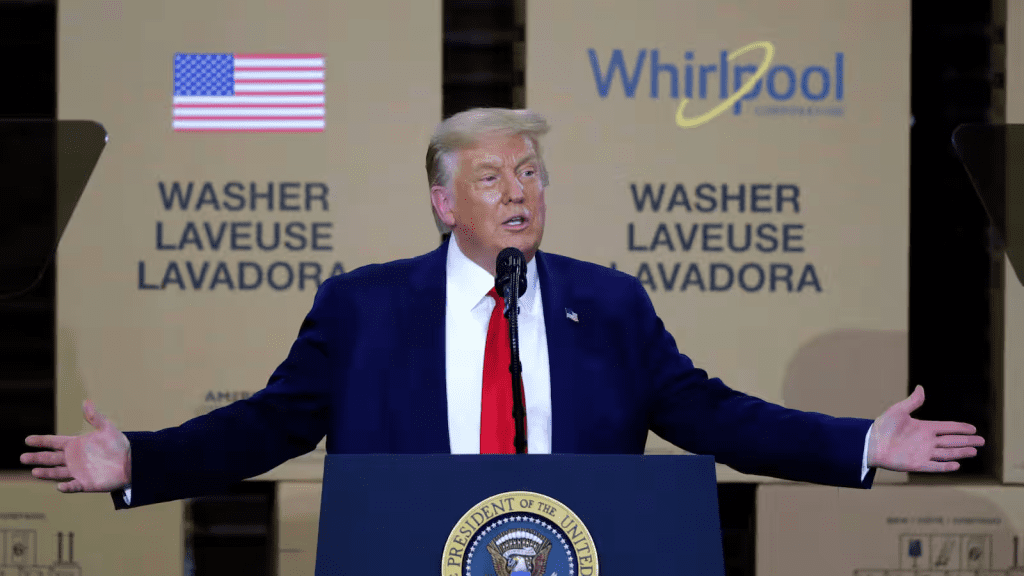
President Trump praised Whirlpool’s decision as a “decisive moment for American workers and American pride,” noting that the company’s success mirrors his vision of self-reliant national industry. His supporters see this as another key victory in restoring U.S. manufacturing strength—proof that policies designed to protect domestic industries continue to deliver results years after implementation.
In communities surrounding Whirlpool’s Ohio facilities, the response has been one of optimism. Local officials anticipate economic ripple effects that will extend far beyond the factory floor—supporting suppliers, small businesses, and transportation networks that rely on a thriving manufacturing base. Analysts also note that Whirlpool’s move may encourage other companies to reinvest domestically, particularly as the U.S. market increasingly rewards American-made products with stronger brand loyalty and higher consumer trust.
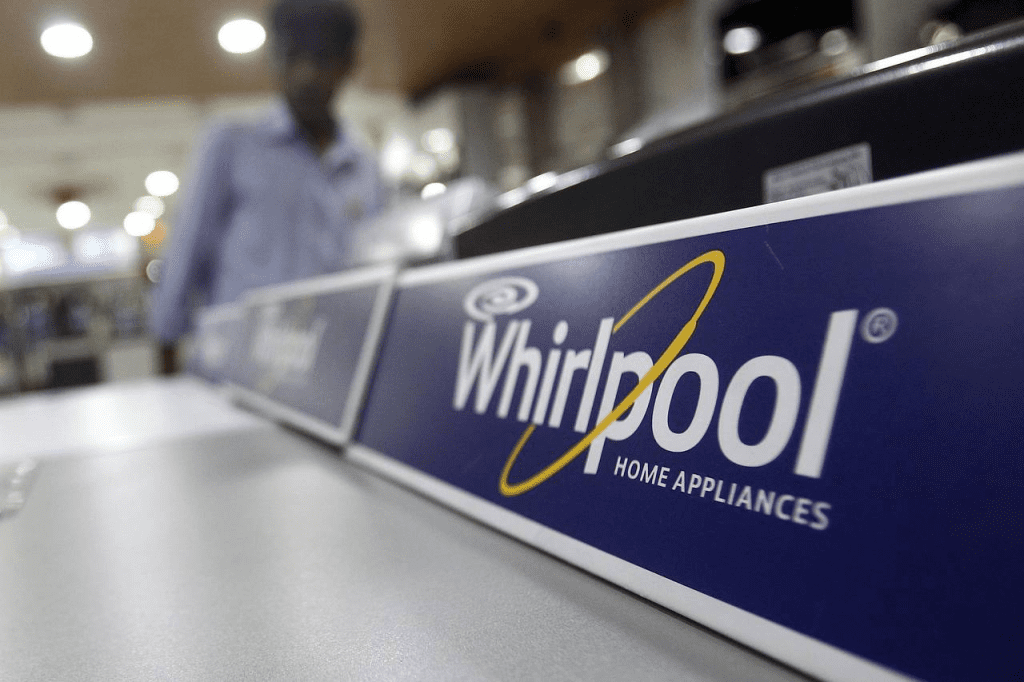
For Trump’s administration, the moment is more than just economic—it’s symbolic. It reinforces a narrative of resilience and renewal, showcasing how policy, perseverance, and patriotism can converge to drive tangible growth. As global competition remains fierce, this announcement serves as a reminder that America’s industrial power, once written off by many economists as outdated, is once again proving its strength in the modern economy.
Whirlpool’s expansion stands as a powerful chapter in the story of America’s manufacturing revival—one written not only with steel and capital but with a renewed belief in the nation’s capacity to build, produce, and lead.
